This week on the Memphis Flyer Podcast, political columnist Jackson Baker and Chris McCoy talk about the election and try to come to grips with what just happened. Check it out on YouTube.
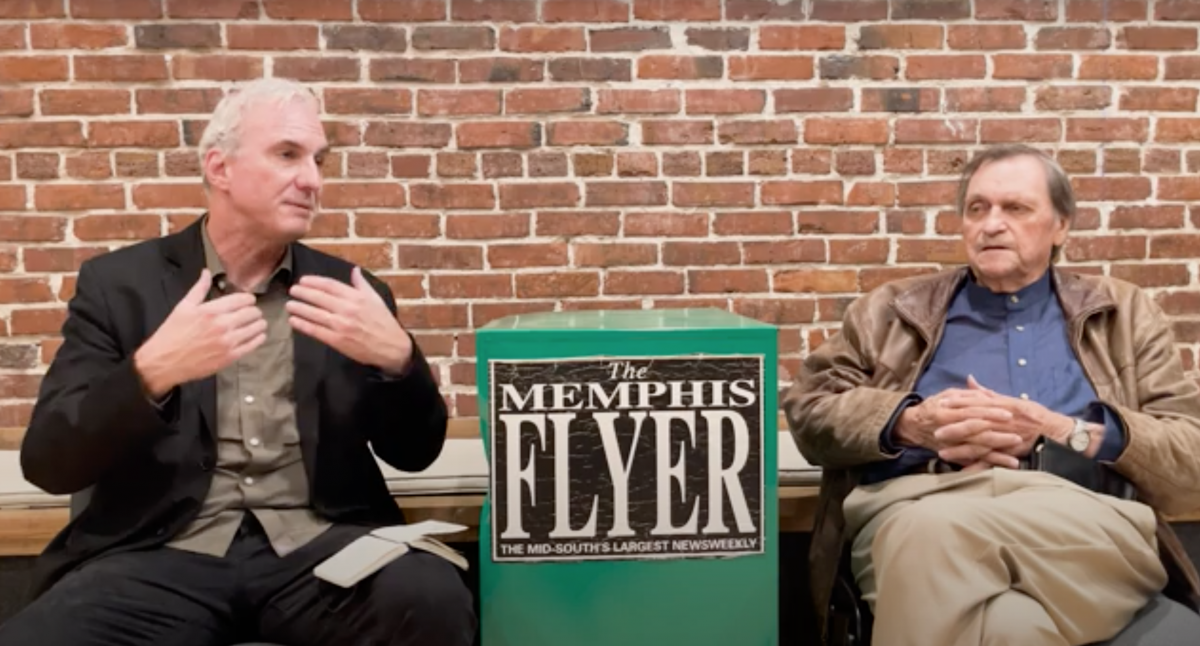

This week on the Memphis Flyer Podcast, political columnist Jackson Baker and Chris McCoy talk about the election and try to come to grips with what just happened. Check it out on YouTube.
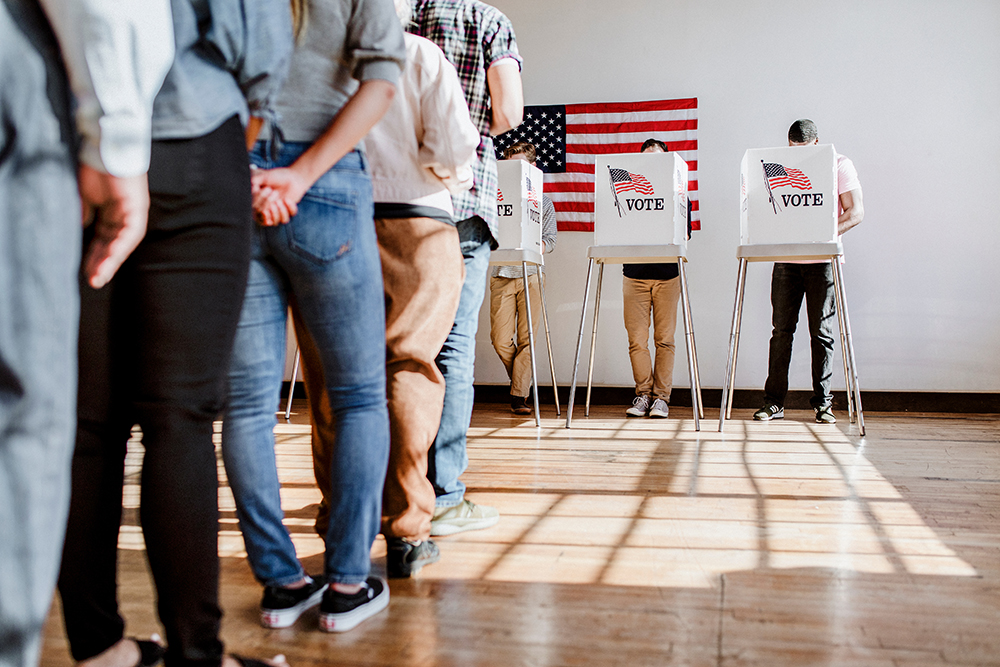
The 2024 election season had its share of both suspense and drama.
That was certainly true of the quadrennial national election for president (arguably the most momentous one since the Civil War), which went down to the wire and frazzled millions of nerve endings before a winner could be discerned.
As all prognostications had it in advance, the presidential picture seemed headed for a resolution later than election night itself. Such opaqueness as lingered in the vote totals abruptly dissolved by the morning’s light, however. Shockingly, Donald J . Trump was back. With a vengeance.
At the center of the suspense had been the three so-called “blue wall” states of Pennsylvania, Michigan, and Wisconsin. It was presumed that a victory for Democrat Kamala Harris in all three of these habitually Democratic states would give her the presidency, but just barely. A victory for former GOP president Trump in any of them could drastically derail that prognosis. In the event, he appears to have won them all, as he did in 2016.
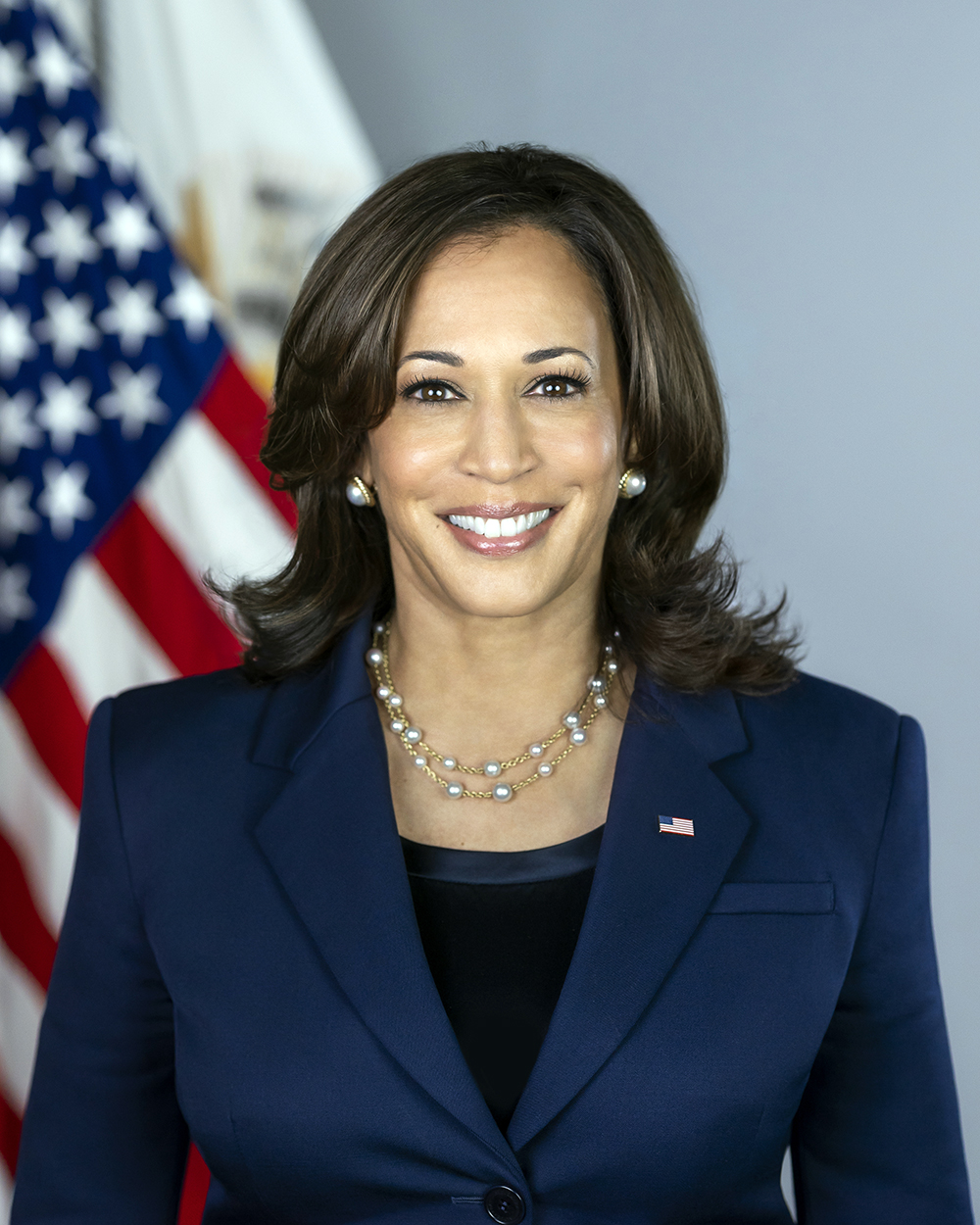
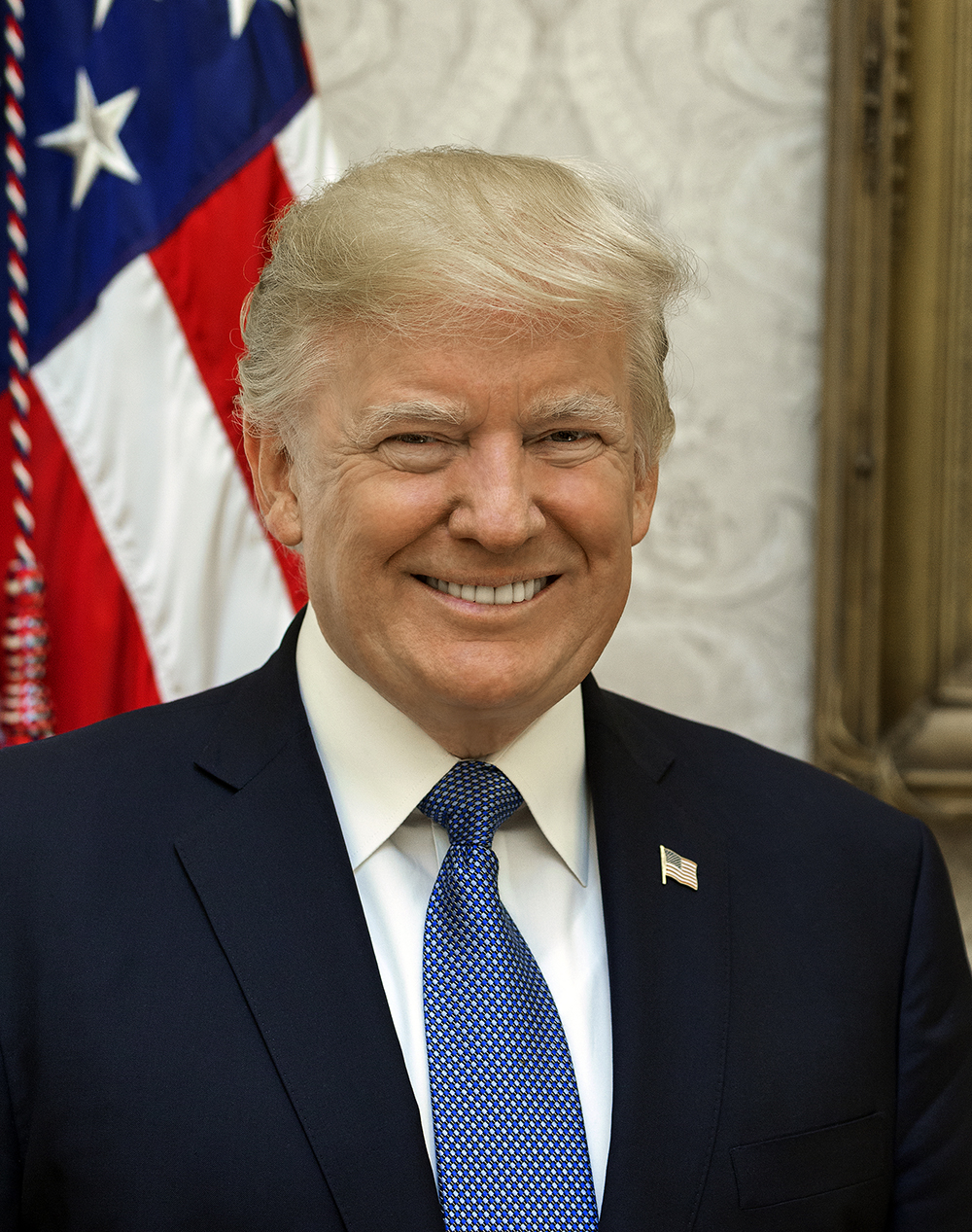
Nor was drama absent from the local side of the ballot. There is little prospect of the local results being challenged, as is always possible with the presidential numbers, but their effect may linger and, in some cases, simmer.
This is especially true of the series of referenda that Memphis voters were asked to pass judgment on. As of late Tuesday evening, election commission totals had all the referenda winning handily.
The most significant ones — the outcome of which was never much doubted — had set city against state and enraged the guardians of statehouse authority well in advance of the individual items receiving a single vote.
In brief, the offending referenda items of Ordinance 5908, asked city residents to approve (1) restoration of permits for the right to carry firearms, (2) a ban on the sale of assault weapons in the city, and (3) a “red flag” proviso empowering the local judiciary to confiscate the weapons of demonstrably risky individuals.
All of the items are “trigger laws,” to be activated only when and if state law should permit them.
Even so, the Republican Speaker of the state House of Representatives, Cameron Sexton, had made bold to threaten the city of Memphis with loss of state-shared revenues unless the offending referendum package — unanimously approved by the city council — was withdrawn from the ballot.
That was enough to make the Shelby County Election Commission blanch, but the council itself was not cowed and, led by Chairman JB Smiley Jr., sued to have the measures restored. Chancellor Melanie Taylor Jefferson obliged.
As did Memphis voters, in their turn. All three questions of Referendum 5908 passed by gigantic majorities of 100,00 votes or more.
Other referenda passed on Tuesday would: strike down the city’s existing ban of runoffs in at-large elections (Referendum 5884), impose a two-year residency requirement for Memphis mayoral candidates (Referendum 5913), and authorize the city council to determine the salaries of the mayor, council members, the city chief administrative officer, and division directors (Referendum 5893).
All in all, it was a good night for the referenda, as well as for the council itself. And, arguably, for the citizens of Memphis.
Perhaps predictably, the form sheet also held for elective offices, with incumbents of both parties doing very well indeed.

Republican U.S. Senator Marsha Blackburn held off a challenge statewide from Knoxville state Representative Gloria Johnson, her Democratic opponent, though in heavily Democratic Shelby County, Johnson was leading, 156,303 to 104,633.
Another Republican incumbent, 8th District Congressman David Kustoff led Democratic challenger Sarah Freeman by a 2 to 1 margin in Shelby County’s portion of the vote, 66,398 votes to 30,255.
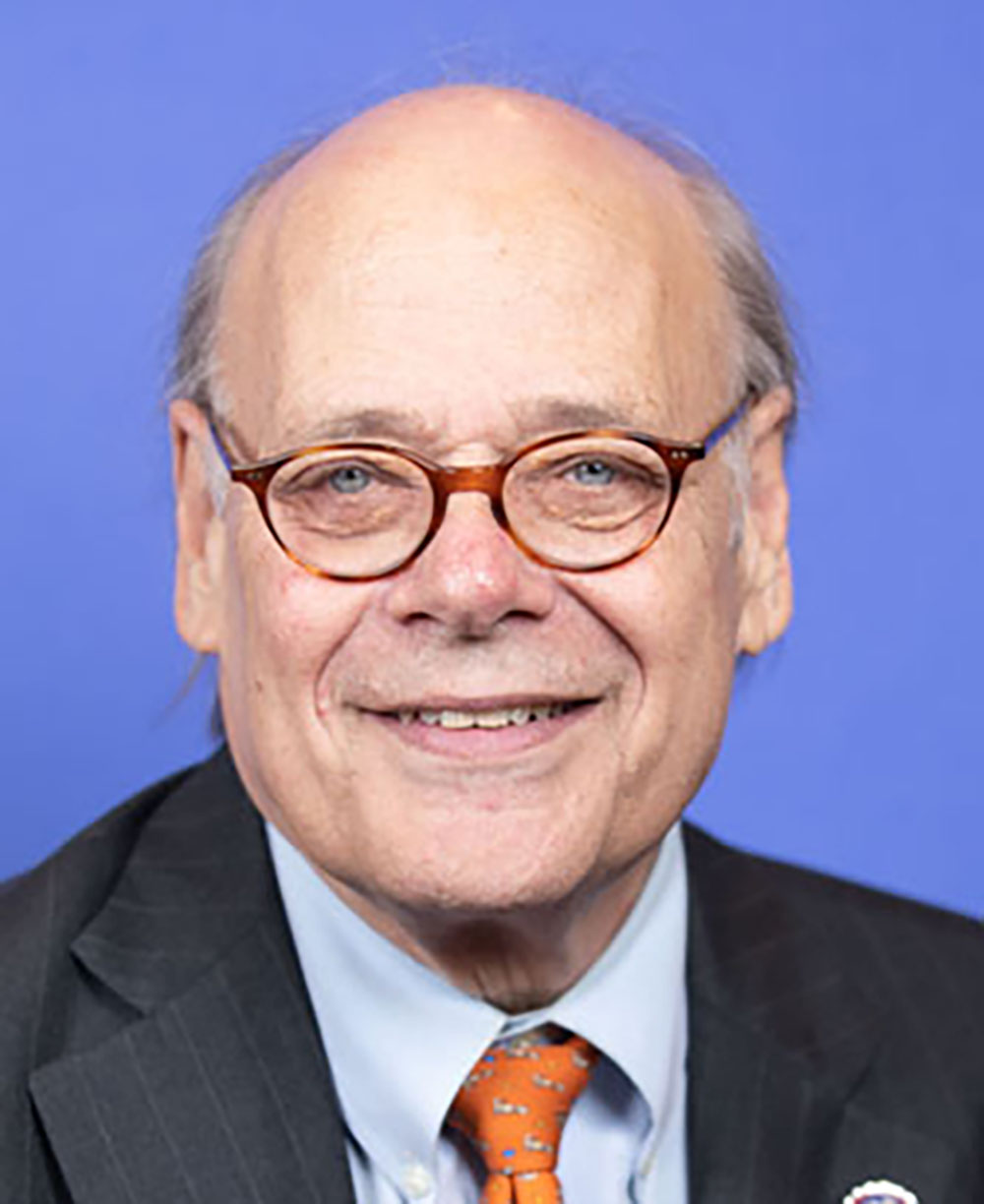
Meanwhile, 9th District Democratic Congressman Steve Cohen was overwhelming his perennial Republican opponent Charlotte Bergman even more dramatically with vote totals in the county of 162,299 to 47,634.
On the legislative scene, the much-ballyhooed District 97 state House race saw Republican incumbent John Gillespie edging out his Democratic challenger Jesse Huseth, 15,859 to 14,600.
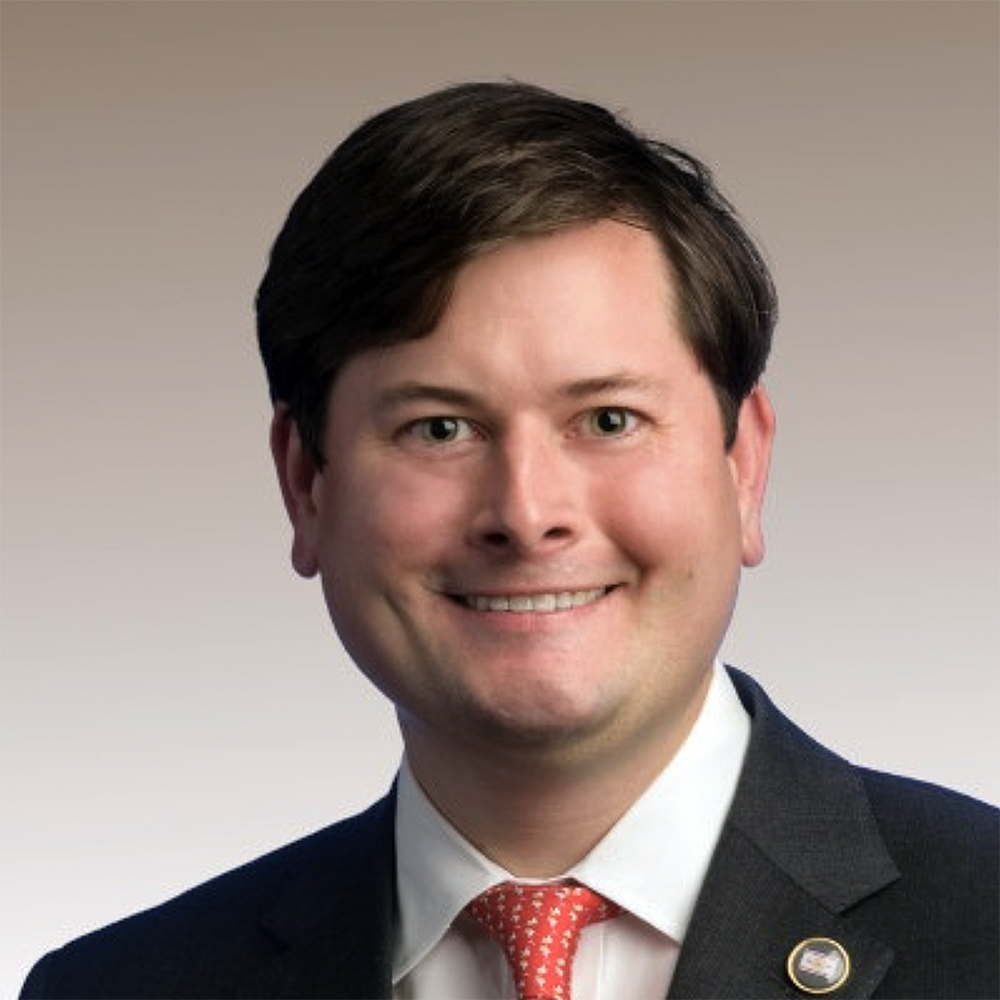
And, in another state House race where Democrats nursed upset hopes, in District 83, incumbent Republican Mark White held off Democrat Noah Nordstrom, 19,283 to 13,713.
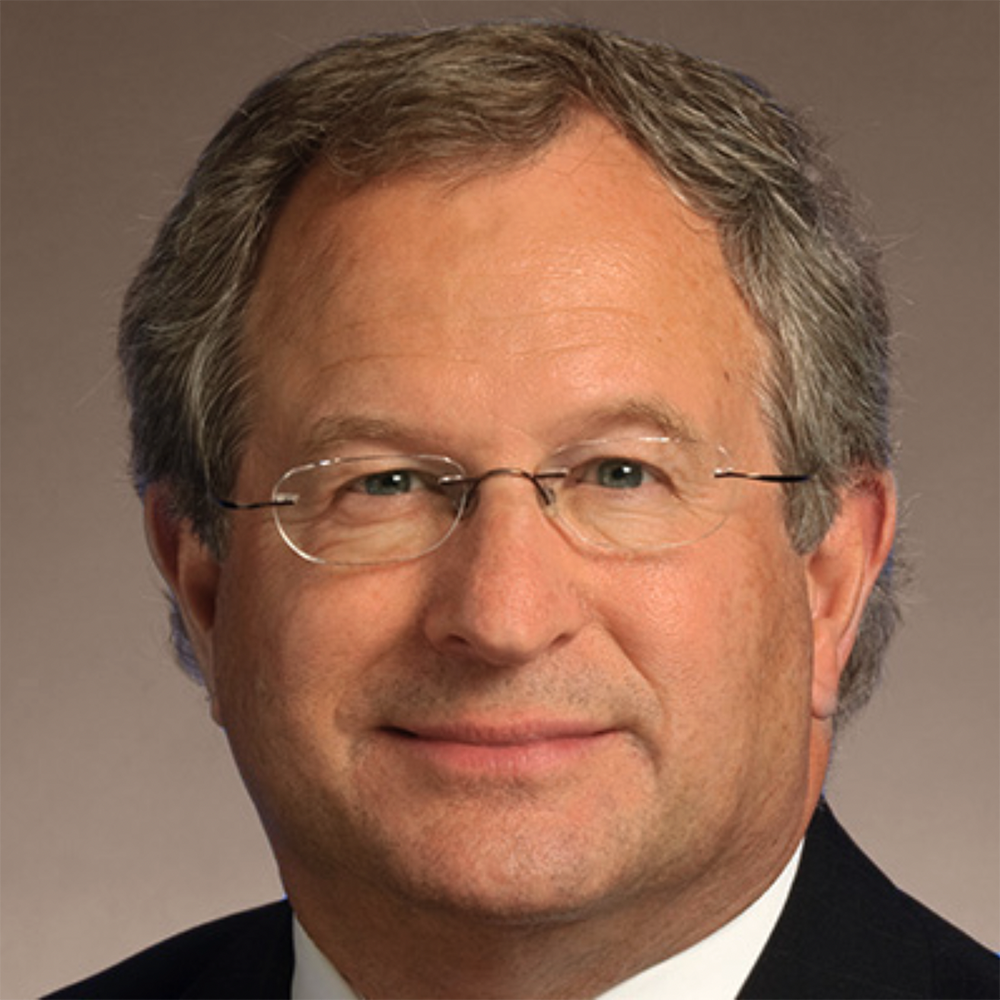
Most attention — locally, nationally, and even worldwide — remained on the showdown between Trump and Harris.
As late as the last weekend before this week’s final vote, the presidential race was being referred to as a dead heat, a virtual tie, a sense of things apparently corroborated by a string of polls in the so-called “battleground” states — the Rust Belt trio of Pennsylvania, Michigan, and Wisconsin; the Sun Belt states of Nevada and Arizona; and the competitive Southern states of Georgia and North Carolina.
A freakish outlier poll in the presumably red state of Iowa showing Harris with a last-minute edge over Trump in Iowa, though, was an indicator of possible unexpected volatility.
That the presidential race had even gotten so measurably close was a reflection of a political standoff in which halves of the nation had seemingly cleaved against each other in a variety of different and sometimes paradoxical ways.
This was not the same old story of Democrats versus Republicans. Both of those coalitions had undergone profound changes over the years. No longer was the “working class” (ditto, the “middle class”) to be grouped in a single body. Upward mobility had revised people’s notions of class, then stalled in such a way as to confuse them further. Generational change was rampant, and ethnicity was no longer a dependable metric for determining political attitude. Disagreement over social matters like gender identity and abortion policy had sundered the old divides.
The center could not hold. It was not only, a la Yeats, that the falcon could not hear the falconer. Social media and impatient ways had created multitudinous new sources professing to be the latter.
The nation’s two-party political system had atrophied to the point that, seemingly, neither was able to generate a dependable bench of A-list players. Donald J. Trump, the Republicans’ once and would-be future president, had come from the worlds of seat-of-the-pants commerce and TV showbiz to reign over a hodgepodge of time-servers, has-beens, and sycophants in his party, and Democratic incumbent president Joe Biden, a survivor of his party’s dwindling corps of traditionalists, headed up the Democrats.
That’s how things were at the end of the early-year primaries, and there were no few voices wondering aloud: Was that all there was, this uninspiring rematch of moldy oldies?
To give Biden his due, he had done his best to wreak from overriding political inertia some promising legislation, especially in the rebuilding of the country’s decaying infrastructure. To give Trump his due, he had recovered from a stupefying series of misdeeds, including, arguably, an aborted coup against the political system, to regain his political stature.
When the two met on a late-June debate stage on the eve of the two party conventions, the 81-year-old Biden, who had fared well in the earlier presentation of his State of the Union address, crumbled so visibly and profoundly that to many, probably most, observers, the presidential race seemed over then and there, especially when the 78-year-old Trump would go on to defiantly survive a serious assassination attempt two days before the opening of the GOP political convention in July.
But desperation in the Democrats’ ranks had meanwhile generated a determination to replace the compromised Biden at the head of the party ticket. Enough pressure developed that the incumbent finally, if reluctantly, had to yield, and realistically, given the lateness of the hour, the most feasible outcome proved to be that of elevating Vice President Kamala Harris, the erstwhile California senator and former prosecutor, in Biden’s stead at the Democratic convention in August.
Once the matchup between Trump and Harris got established, it quickly settled into an even-steven situation, a kind of free-floating draw in which the two sides always stayed within reach of each other.
From the Democratic point of view, this would seem something of a miracle. Nikki Haley had based her runner-up GOP presidential race on the conceit that a female could win the presidency, either herself or, with the aging Biden still a candidate, his vice president, Harris, still regarded at that point as a nonentity. It was Haley’s way of mocking the opposition.
Indeed, even in Democratic ranks, Harris was long seen to be something of a liability, a drag on the ticket. That this was due to the way she had been used — or misused — by the incumbent president (in the ill-defined role of “border czar,” for example) became evident only when she was freed to become her own person.
On the stump in her own right, she proved to be a natural, with unsuspected reserves of charisma and an appeal that was fortified by her selection of the pleasantly homey governor of Minnesota, Tim Walz, as her running mate. (Trump’s choice as potential veep, the edgy Ohio Senator JD Vance, was clearly head-smart and acceptable to Trump’s base among the MAGA faithful but kept bumping up against his own innate arrogance.)
The change in tone among the Democrats was almost instantly evident. It came to be symbolized in the concept of “joy” and in Harris’ slogan, “a new way forward.”
While coming across as a certifiable New Thing, she was also able, credibly, to posit herself as the defender of constitutional values against the alleged schemes by the usurper Trump to override them in the interests of personal power.
“We are the promise of America,” she would say, uniting her own purpose with those of her audience members.
Against this, against Harris, the ebullient rock-star presence on stage, Trump seemed buffaloed. In his fateful June debate duel with Biden, he had seemed vital, a hurricane of restless energy hurling scorn and unchecked charges at his befuddled opponent. Now it became more and more obvious that he, too, was a near octogenarian, with no new promise of his own to offer.
The shift in positions was fully demonstrated, post-conventions, in the follow-up debate with Harris when, matador-like, she had baited the bullish Trump with mockery of his rallies (which, in fact, were becoming more and more disorganized and less and less focused and empty of real content). His red-eyed response, that Haitian immigrants were eating the dogs and cats of Middle Americans in Ohio, was perfectly framed for the television audience by the split image of Harris’ gleeful wonderment at this out-of-nowhere non sequitur.
It was not long afterward that Harris’ progress was slowed somewhat, as much by a petulant media’s insistence that she submit to interviews as a sign of her seriousness as anything else. Dutifully, she did, and emerged with appropriate talking points — a middle-class tax cut, subsidies for small business and new housing starts, and legislation to suppress price-gouging. These would become highlights of the “to-do” list which she would juxtapose against what she characterized as the brooding Trump’s ever-multiplying enemies list.
It became a cliche of press coverage that the former president’s seething ire at an imagined “enemy from within” was displacing what his would-be handlers wanted him to discuss — a supposedly intractable inflation and the pell-mell overcoming of the nation’s borders by a horde of illegal invaders. Both menaces, as it happened, were in something of an abatement — the former by a plethora of relatively rosy economic indices, the latter by fairly resolute, if delayed, executive actions taken by the lame-duck president in the summer and fall.
What Trump’s audiences were getting on the stump instead was the overflow of his ever more naked id, a witches’ brew of resentment and machismo — insults against his adversaries, threats to use the machinery of government against them, and improvisations on themes ranging from Arnold Palmer’s junk size to nostalgia for “the late, great Hannibal Lecter.”
Partly, this was due to what Harris characterized as her opponent’s presumed “exhaustion,” but partly, too, it was Trump’s instinctive reliance on what had always been the source of his appeal, an exposure of pure personality, a willingness, for better or for worse, to let it all hang out, to be The Show, a cathartic vehicle for release of his followers’ emotions.
It was this penchant, after all, that had allowed him to sweep past a stage full of practical Republican politicians during the primary season of 2016 and, later that year, to surprise the calculating and overconfident Hillary Clinton at the polls.
GOP eminences — even those who, like Senate Republican Leader Mitch McConnell, despised Trump, or, who, like senators Marco Rubio and Ted Cruz, had been vilified by him, learned that they were no match for his carnival-like presence and resolved to use him for their own purposes, only in the end to be used by him instead for his.
It remained a fact that, for all his defects, real and imagined, Trump was able to sustain a plausible hope of regaining the office he had lost to Biden in the pandemic-inflected campaign year of 2020.
And, beyond the presidential race itself, Republicans still nursed hopes of holding onto their slim majority in the House of Representatives as well as of capturing the Senate outright. At stake were such matters as healthcare, climate change, and reproductive policy domestically, as well as of meeting the economic challenge of China and in the conduct of foreign policy in the Middle East and vis-a-vis Russia in its challenge to NATO in Europe.

As was surely to be expected, the next-to-last weekend of the climactic 2024 election campaign was filled with feverish activity of various kinds — with early voting into its second week and candidates trying to get as many of their partisans as possible to the polls.
A case in point was a pair of events involving Gloria Johnson, the Knoxville Democrat who is trying to unseat incumbent Republican Senator Marsha Blackburn.
Johnson, the state representative who gained national attention last year as a member of the “Tennessee Three” proponents of gun-safety legislation, has raised some $7 million for her bid — almost all of it from in-state sources, she contended proudly.
While that is no match for the incumbent’s $17 million or so, it has been enough to buy Johnson a series of concise and well-produced TV spots pinpointing Blackburn’s alleged shortcomings. And it even gives her some of the kind of influence that politicians call coattails.

Johnson was in Shelby County on Saturday, sharing time with two other Democrats, District 83 state House candidate Noah Nordstrom (like Johnson a public schoolteacher) and District 97 House candidate Jesse Huseth.
The first event was a joint rally with Nordstrom and state Democratic chair Hendrell Remus just outside the perimeter of the New Bethel Missionary Baptist early-voting station. Next, Johnson met up with Huseth at High Point Grocery for some joint canvassing efforts, after which Huseth, who opposes GOP incumbent John Gillespie, set out on some door-to-door calls on residents in that western part of his district.
The most unusual pre-election event on Saturday didn’t involve Johnson, nor was it, in the strictest sense, a partisan event at all. It was a meet-and-greet at the Belly Acres restaurant in East Memphis involving both Nordstrom and his GOP adversary, incumbent Republican state Representative Mark White.
Not a debate between the two, mind you. A joint meet-and-greet, at which both candidates circulated among the members of a sizeable crowd, spending conversational time with the attendees and with each other.
The event was the brainchild of one Philip D. Hicks, impresario of something called the Independent Foundation for Political Effectiveness. Hicks says he hopes the Nordstrom-White encounter, his organization’s maiden effort, can serve as a precedent for other such joint candidate efforts to come — presumably in future election seasons.
Inasmuch as political competition is, by its nature, an adversarial process, it’s somewhat difficult to imagine such events becoming commonplace, but, all things considered, this first one went amazingly well.
It wasn’t the same kind of thing at all, but there were elements of such collegiality between potential election opponents at an earlier event, a meeting of the Germantown Democratic Club at Coletta’s on Appling Road during the previous week.
That event included Memphis City Council Chair JB Smiley as its featured speaker, and Smiley, who is reliably reported to be thinking of a race for Shelby County mayor in 2026, spent a fair amount of time comparing notes on public matters (e.g., MLGW, the future of the erstwhile Sheraton Hotel) with attendee J.W. Gibson, a businessman who has basically already declared for that office.
Take heed, Mr/Hicks.

A local study of poverty rates in Memphis and Shelby County confirms what most people, local and otherwise, probably already suppose to be the case.
The incidence of poverty is higher in the city proper than in the county as a whole, and both Memphis and Shelby County have a higher rate of poverty than does Tennessee, while the state itself has a higher incidence of poverty than pertains in the nation.
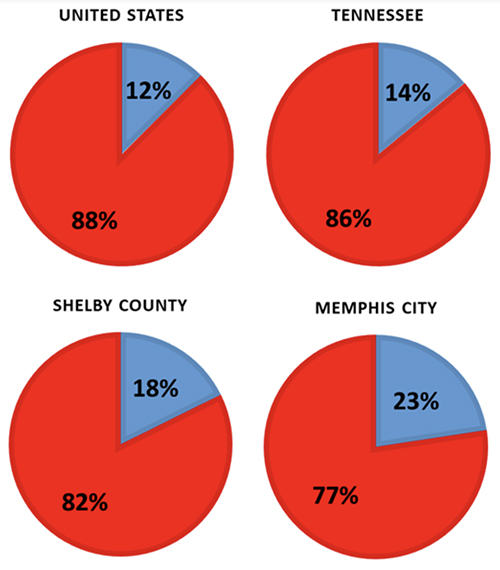
The study, entitled 2024 Memphis Poverty Fact Sheet, was prepared by local analysts Elena Delavega and Gregory M. Blumenthal, a husband-and-wife team who undertake annual statistical reports on the incidence of poverty.
If there is a surprise in the study, based on 2020 census figures, it is that poverty rates for non-Hispanic whites are higher in Tennessee at large than in the United States, Shelby County, and the Metropolitan Statistical Area (MSA) of Memphis.
This might seem to suggest a rising affluence gap between the state’s white residents and its Black and brown residents. It also has implications concerning the effects of out-migration from the Memphis area.
Poverty has increased since last year, the authors find. “This is true for most groups, including children and minorities, but not for whites in Memphis or Shelby County,” they say. “Poverty for non-Hispanic whites has fallen since 2022. It also appears that the population size of non-Hispanic whites in the city of Memphis has dropped more than for other groups, suggesting that those non-Hispanic whites who left were those in poverty.”
It is “not a surprise,” say the authors, that the poverty rate among minorities is higher than among whites. Indeed, they find that structural disparities based on race seem to have accelerated in 2023. “[These] disparities remain and will require deliberate efforts to dismantle. Solving poverty will require regional solutions and regional investments.”
One possible explanation for what seems to be a deepening divide locally is that the labor market in Memphis tends to consist of unskilled workers in the warehouse industry. “The lack of comprehensive, effective, and efficient public transportation also makes progress against poverty quite difficult,” the authors maintain.
“An additional problem has been that of external firms acquiring Memphis housing stock and renting it to Memphians at inflated prices, which makes it almost impossible for local families to afford housing.”
Finally, say the authors, “The divide between the city and the county, as evidenced by the racial and geographical differences in poverty, tends to deprive the city of Memphis of the funds it needs to support the region.”
Apropos the racial divide, the authors note that while Memphis ranks second in overall poverty and first in child poverty among large MSAs (urbanized areas with populations greater than 1,000,000) and second in overall poverty and child poverty among cities with over 500,000 population, it ranks significantly better when only whites are included.
Ranked only by its white population, Memphis is positioned significantly lower in the list, ranking 25th among 54 large MSAs (populations greater than 1,000,000) and 61st among 114 MSAs with populations greater than 500,000.
Ominously, the authors conclude that while the long-term poverty trend provides evidence of the structural nature of poverty in Memphis, five-year trend graphs suggest that disparities are increasing along racial lines.
• Meanwhile, on the eve of the pending presidential election, an equally fraught finding comes from a new poll by the Vanderbilt Project on Unity and American Democracy. The survey, conducted from September 20th to 23rd, based on responses from 1,030 adults across the nation, concludes that most Americans think that democracy is in danger.
More than 50 percent of Americans think that our democracy is “under attack” in the run-up to the election. The Unity Poll is meant to offer “regular snapshots of Americans’ sense of national political unity and their faith in the country’s democratic institutions,” according to Vanderbilt professor John Geer.
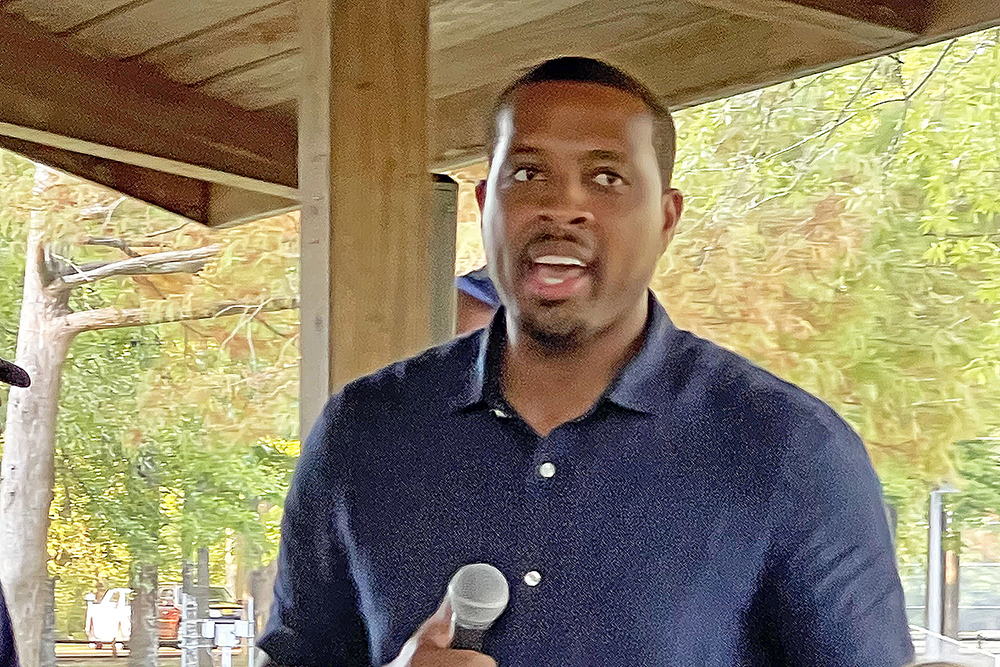
Most people are familiar with an adage, often attributed to the late Speaker of the U.S. House Tip O’Neill, that “all politics is local.”
Until it isn’t.
Tennesseans are becoming uncomfortably aware that state government is muscling into as many local government prerogatives as possible — in areas ranging from education to healthcare to social policy to, increasingly, law enforcement.
A number of current circumstances reflect what seems to be a war of attrition waged at the state level against the right of Memphis and Shelby County to pursue independent law-and-order initiatives.
Memphis City Council chairman JB Smiley spoke to the matter Sunday at the annual picnic of the Germantown Democratic Club at Cameron Brown Park.
Said Smiley: “You know, recently, I’ve been, against my will, going back and forth with someone in the statehouse who doesn’t care for Shelby County called Cameron Sexton. Yeah, he doesn’t believe that Shelby County has the right to exercise its voice.“
Sexton, of course, is the Republican speaker of the state House of Representatives who recently threatened to withhold from Memphis its share of some vital state revenues in retaliation for the city’s inclusion on the November 5th ballot of a referendum package soliciting citizens’ views on possible future firearms curbs.
The package lists three initiatives — a reinstatement of gun-carry permits, a ban on the sale of assault rifles, and the right of judges to impose “red-flag” laws against the possession of weapons by demonstrably risky individuals.
All the initiatives are in the form of “trigger laws,” which would be activated only if and when state policy might allow the local options. As Smiley noted, “That’s what the state did when they disagreed with the federal government when it came to abortion rights. As soon as the law changed in the country, [their] law became full and effective. That’s what we’re going to do in the city of Memphis.”
Simultaneous with this ongoing showdown between city and state has been a determined effort by Republican state Senator Brent Taylor and others to pass state laws restricting the prerogatives of local Criminal Court judges and Shelby County District Attorney Steve Mulroy.
One piece of Taylor-sponsored legislation, passed last year, would transfer authority over capital punishment appeals from the DA to the state attorney general. Litigation against the law pursued by Mulroy and an affected defendant resulted in the measure’s being declared unconstitutional in trial court.
But the state Appeals Court reversed that judgment last week, seemingly revalidating the law and causing Taylor to crow in a social media post over what he deemed a personal victory over Mulroy, whom he accused of wanting to “let criminals off of death row” and whose ouster he has vowed to pursue in the legislature.
The fact is, however, that there will be one more review of the measure, by the state Supreme Court, before its ultimate status is made clear.
Some of the immediate media coverage of the matter tended to play up Taylor’s declaration of victory over Mulroy, ignoring the ongoing aspects of the litigation and overlooking obvious nuances.
One TV outlet erroneously reported the Appeals Court as having found Mulroy guilty of “inappropriate” conduct when the court had merely speculated on the legalistic point of whether the DA had appropriate standing as a plaintiff (a point that was conceded, incidentally, by the state Attorney General).
Mulroy’s reaction to the Appeals Court finding focused on the issue as having to do with governance: “The Tennessee Constitution says local voters get to elect a local resident DA to represent them in court. This law transfers power over the most serious cases, death penalty cases, from locally elected DAs across the state to one unelected state official half a state away. This should concern anyone, regardless of party, who cares about local control and state overreach.”

Election coverage and various polls keep emphasizing the dead-heat aspects of the national presidential election, but the fact is that, for voters in Memphis and Shelby County, there is minimal suspense associated with the presidential race.
The assumption is that — population demographics, past election performances, and partisan loyalties being what they are — the Republican Trump-Vance ticket should win easily statewide, and the Democratic Harris-Walz ticket should romp locally.
Which is not to suggest that the presidential race won’t affect other options on the November 5th ballot. There will undoubtedly be a carryover effect from the anticipated heavier turnout of voters expressing their preferences for president.
Clearly, this effect could be all-important in some races on the Shelby County ballot — especially the showdown in the District 97 race for state representative between GOP incumbent John Gillespie and Democratic challenger Jesse Huseth. This race, for the right to represent Memphis’ upscale Poplar Corridor, is being closely watched for its potential future implications regarding the statewide voter mainstream.
But in the long as well as the short run, the key portions of the local ballot could be four referenda directed at Memphis voters, the outcome of which could be more than usually significant.
The most highly publicized of these is City of Memphis Referendum Ordinance No. 5908, a three-parter couched in pollster-like terms that could serve as a potential trigger mechanism for enacting local gun safety measures in the future.
The referendum would serve to measure city voters’ sentiment for reinstatement of carry permits for firearms, for banning the local sale of assault rifles, and for enabling judges to issue extreme-risk (“red flag”) protection orders prohibiting gun ownership by certifiably risky persons.
Ordinance No. 5908, authorized by the city council in light of citizen alarm concerning violent crimes locally, ignited a back-and-forth legal and rhetorical struggle between city and state authorities, resolved finally by Chancellor Melanie Taylor Jefferson in favor of allowing the referendum on the local ballot in the face of threats by state officials to withhold shared state tax revenues from the city.
Also on the ballot are several provisions involving the city charter that would have direct impact on the conduct of Memphis elections and city government at large.
City of Memphis Referendum Ordinance No. 5884 would strike down the ban of runoffs in mayoral and at-large city races that was established in 1991. The ban was imposed by the late federal Judge Jerome Turner as a safeguard against organized blanket voting against Blacks, then (but no longer) a racial minority.
City of Memphis Referendum Ordinance No. 5913 would impose a requirement that candidates for Memphis mayor would have to establish legal residence in the city for two years prior to election. This referendum, if passed, would resolve a legal dispute that arose in the mayoral election of 2023 — one that saw the viability of several prominent candidates come under question.
And City of Memphis Referendum Ordinance No. 5893 would “authorize the City Council by ordinance to fix and determine the salaries of the Mayor, City Council, Chief Administrative Officer, and Appointed Directors and Deputy Directors.”
This referendum, authorized by the council in light of several recent disputes between itself and the current mayoral administration, would tilt the weight of authority in favor of the council.

It may be the proverbial tempest in the teapot, but the quarrels among Democrats, both local and statewide, continue to boil over.
The Shelby County Democratic Party (SCDP) may or may not have fully recognized official leadership as a result of contradictory recent actions taken by state chairman Hendrell Remus and the local party executive committee.
Remus started the turmoil by a surprise announcement, weekend before last, that he was removing local party chair Lexie Carter from her position as head of the SCDP. This was in the immediate wake of the local party’s annual Kennedy Day banquet, which drew a sizeable crowd of attendees and, according to Carter, raised $40,000 for party coffers.
Remus said the basis of his action was Carter’s failure to prepare an acceptable plan for the November election in response to his request for one in a questionnaire sent to Carter. As needy but overlooked Democrat campaigns, he mentioned specifically that of District 97 state representative candidate Jesse Huseth, who opposes Republican incumbent John Gillespie, and that of Gloria Johnson of Knoxville against GOP U.S. Senator Marsha Blackburn.
But, according to Carter, the state chair’s action was more likely due to a series of conflicts that occurred between Remus and herself and others at the Democratic National Convention in Chicago in August.
In any case, Remus’ action has not gone unchallenged. Both his decision and the authority to take it have been challenged, locally and at the state level.
Speaking for himself and what he said was a sizeable portion of the state Democratic committee’s membership, Erick Huth of Shelbyville, until recently a member of that committee from state District 14, said the party’s bylaws did not permit Remus to remove a local chairman without expressly granted permission from the state body.
Remus had said he vetted in advance his removal of Carter with several West Tennessee vice chairs of the state party, but, said Huth, such a claimed consultation, even if accurate, would not have authorized Remus’ removal action.
Huth, who in August lost an election to retain his state committee seat, said that fact enabled him to speak more freely about party matters, including what he said was Remus’ high-handed and ineffective conduct of his chairmanship.
“The state committee is badly divided, and that’s largely due to Hendrell,” he said.
An active state committeeman from Nashville, who chose not to be identified, confirmed Huth’s analysis of things.
For the record, Hendrell Remus has opted not to be a candidate for reelection as chair in state committee elections scheduled for January. According to various sources, Remus intends to return to Memphis, his former home base, in order to scout a possible future run for an elective position.
Meanwhile, the executive committee of the local SCDP met late last week in Whitehaven and, in a highly argumentative session, engaged in disagreements among themselves as well as with state chair Remus about the whole brewing matter.
The local committee declined in its turn to accept Remus’ changes, which included the naming of four proposed temporary co-chairs for the SCDP.
These were former state Representative Dwayne Thompson, Memphis City Council Chair JB Smiley Jr., Shelby County Commission Chair Miska Clay Bibbs, and veteran party figure Danielle Inez. The proposed new co-chairs were invited to speak their piece on ideas for the party and the fall election, but their status as party leaders was not confirmed.
Instead, in the absence of both Lexie Carter and Hendrell Remus from the meeting, the local committee named as acting SCDP chair Will Simon, who is a current state party vice chair.
None of these changes, by the state chair or the SCDP committee, would seem to be anything but ad hoc expedients, as the situation simmers on.
New SCDP elections are scheduled for December.

“Shock waves” is too strong a term for the reaction, but a fair number of eyebrows have been raised by the surprise action of state Democratic Party chair Hendrell Remus in removing from power local Shelby County party chair Lexie Carter.
The action took place Thursday following a Zoom call between Carter, Remus, and others. Invoking what the state chair said was the absolute authority of the state party over local parties, Remus said Carter had not measured up to the needs of a coordinated Democratic campaign for the fall election.
He mentioned specifically the campaigns for District 97 state representative of Jesse Huseth, who opposes Republican incumbent John Gillespie, and that of Gloria Johnson of Knoxville against GOP U.S. Senator Marsha Blackburn.
Remus said he had sent a questionnaire to Carter asking for details of the local party’s readiness for election activity and received insufficient information in response.
Carter professed to be taken by surprise by her removal, having just, as she maintained, presided over the local party’s annual Kennedy Day banquet on September 5th and grossed upwards of $40,000 for party coffers.
She alleged that a number of disagreements and confrontations had occurred between herself and Remus at the recently concluded Democratic National Convention in Chicago.
Remus had apparently been considering the removal action well in advance, having discussed the possibility with potential ad hoc successors to Carter the previous week.
He said he would appoint four temporary co-chairs to guide the Shelby County Democratic Party (SCDP) until December, when a local party election would be held. The Flyer has learned that two of those invited to serve in that capacity are outgoing state Rep. Dwayne Thompson and City Council Chair JB Smiley.
Former local party chair and ex-County Commissioner Van Turner, who had assisted Carter in answering Remus’ questionnaire, raised concerns about due process in Carter’s removal and likened his action to the state Republican Party supermajority’s attempt to dominate over the actions of local government.
The new developments recalled the situation of 2016 when then-state Democratic chair Mary Mancini disbanded the Shelby County party following years of local controversy, including charges of embezzlement.
The local party was reconstituted in 2017 with Corey Strong as chair. So far, no names have surfaced as potential local candidates for the permanent chairmanship of SCDP.
As it happens, Remus will be giving up his own chairmanship in January, when his elected term ends. So far the only known candidate to succeed him is Rachel Campbell, chair of the Hamilton County (Chattanooga) Democratic Party and vice chair of the state party.
• Sarah Wilkerson Freeman, the Democratic nominee for the 8th District congressional seat, confirms that Susan Boujnah, a videographer who accompanied her to last month’s Democratic National Convention, is hard at work on an official campaign video, which will be released (presumably via social media) within the month.
Though Freeman has issued no formal debate challenge to Republican incumbent David Kustoff, Freeman observed that the NAACP will be holding an open forum for area candidates in Collierville on October 8th and that Kustoff is among those invited to participate.
Freeman, a resident of Germantown, likes to say she lives “within spitting distance” of her opponent.
• Former U.S. Senator Jim Sasser died at his North Carolina home last week. Sasser represented Tennessee in the Senate from 1977 to 1995 and later served as ambassador to Japan.

In a surprise action that recalls a similar circumstance eight years ago, state Democratic Party chair Hendrell Remus has removed local Shelby County party chair Lexie Carter from power.
The action took place Thursday following a Zoom call between Carter, Remus, and others. Invoking what the state chair said was the absolute authority of the state party over local parties, Remus said Carter had not measured up to the needs of a coordinated Democratic campaign for the fall election.
He mentioned specifically the campaigns for District 98 state representative of Jesse Juseth, who opposes Republican incumbent John Gillespie, and that of Gloria Johnson of Knoxville against GOP US Senator Marsha Blackburn.
Remus said he had sent a questionnaire to Carter asking for details of the local party’s readiness for election activity and received insufficient information in response.
Carter professed to be taken by surprise, having just, as she maintained, presided over the local party’s annual Kennedy Day banquet last weekend and raised upwards of $40,000 for party coffers. She alleged that a number of disagreements and confrontations had occurred between herself and Remus at the recently concluded Democratic National Convention in Chicago.
Former local party chair and ex-County Commissioner Van Turner, who had assisted Carter in answering Remus’ questionnaire, raised concerns about due process in Carter’s removal and likened his action to the state Republican Party supermajority’s attempt to dominate over the actions of local government.
Remus said he would be appointing four ad hoc co-chairs to guide the SCDP until December, when a local party election will be held.
The new developments recalled the situation of 2016 when then state Democratic chair Mary Mancini disbanded the Shelby County party following years of local controversy, including charges of embezzlement.
The local party was reconstituted in 2017 with Corey Strong as chair.
More details to come as they are learned.
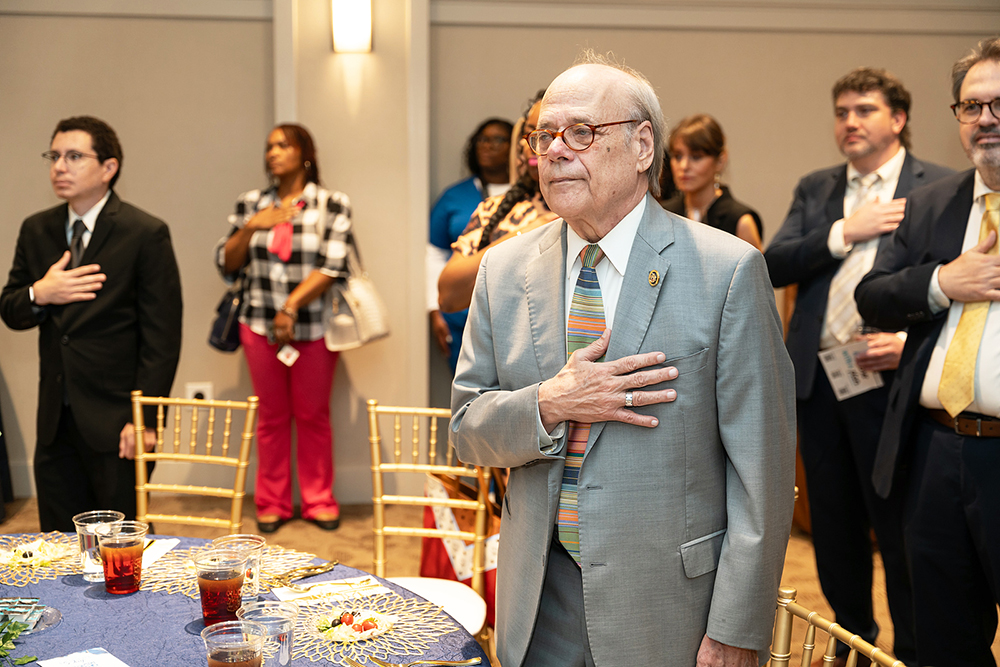
“We’ve secured $13.1 million in federal funding to overhaul one of the most dangerous intersections in our city — Lamar Avenue, Kimball Avenue, and Pendleton Street.”
So begins an online notification from the office of Memphis Mayor Paul Young, and it is accompanied by a photograph of the mayor with U.S. Secretary of Transportation Pete Buttigieg.
The notification goes on to boast that “[w]e’re not just fixing a dangerous intersection — we’re transforming it with clearer signals, safer crosswalks, and better pedestrian pathways” — all of it being “a huge step towards ensuring that every Memphian can navigate our streets with confidence and peace of mind.”
Sounds good all right. I remember that intersection from the days when, as a 14-year-old, I threw the old Memphis Press-Scimitar in that neighborhood. In vintage times, it was where the old streetcars did a turnaround, and it absolutely was hazardous to negotiate, especially on a bicycle.
And comes yet another online notification — this one from 9th District Congressman Steve Cohen: “I’m pleased to announce a new investment of $13.1 million [under the] Infrastructure Investment and Jobs Act … to completely redesign the dangerous intersection at Lamar Avenue, Kimball Avenue, and Pendleton Street …”
The congressman, a senior member of the House Transportation and Infrastructure Committee, notes further, “I strongly advocated for this project and for funding to improve our streets in hearings with Secretary Buttigieg and in letters of support to the U.S. Department of Transportation, and I’m proud we brought it home.”
Well, er, to whom goes the honor of having snagged this benefit from the feds? The mayor or the congressman?
Both, as it turns out. Asked about it, Cohen calls it a “cooperative joint effort” and says, in a text, “The mayor was a planner, and they’re his people. Politics and pitching by congressmen certainly helps. … Grants don’t just fall out of a coconut tree.”
And credit for the grant goes even further. Cohen points out that the grant, in its original form, was first proposed by former Mayor Jim Strickland and had been included as an earmark in legislation that, before being resurrected, was stalemated in a previous session of Congress.
All of which is to say that, yes, it does indeed take a village to get things done.
• Perhaps unsurprisingly, the vote of the Shelby County Commission on Monday to support the City Council’s lawsuit against the Election Commission to restore a gun-safety referendum on the November ballot was passed on a party-line vote — nine Democrats aye, four Republicans no.
Speaking for the Republicans, Commissioner Mick Wright quoted Governor Bill Lee’s concerns, expressed earlier Monday in Memphis, that the city should find itself at odds “with the rest of the state.” Democratic Commissioner Henri Brooks countered that it was “time to stand up to bullies.” And other commissioners tended to follow their party’s line.
With its vote, the commission became an “amicus curiae” in support of the suit, which has caused various GOP state officials to talk ominously about withholding shared state funding from Memphis.
• Citing the prosecution in Georgia of a father who armed his son with an AR-15 used in a fatal school shooting, Democratic state Rep. Antonio Parkinson says he intends to re-introduce his measure to penalize “a person who illegally transfers a firearm to a minor” using it for criminal purposes. Parkinson’s bill was introduced in last summer’s special session on gun safety but was tabled by the majority Republicans.